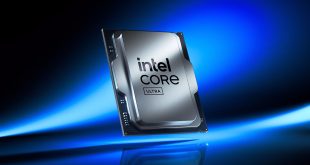AMD’s code-named “Llano” accelerated processing unit took around four years to develop and suffered from a lot teething problems. Market success of the “Llano” was moderate to say at least, but troubles with the chips caused massive losses for AMD. Nonetheless, it looks like AMD will have to suffer because of Llano once again: the company has been sued for overestimating demand for the “Llano”.
AMD “Llano” was the company’s first chip that represented the so-called Fusion design approach, integration of x86 processing units and graphics processing units into the same piece of silicon. Development of the code-named “Llano” took almost four years and its introduction was delayed because manufacturing partner GlobalFoundries had issues with 32nm manufacturing process with silicon-on-insulator (SOI) with high-k metal gate (HKMG) dielectric technologies. Initial production yields of the “Llano” were lower than expected, which forced the company to supply the chips primarily to OEMs. To make the matters worse, AMD failed to ensure sufficient supply of FM1 mainboards into the channel, which resulted into low demand for “Llano” chips. Obvious problems with the “Llano” did not stop AMD from expressing too positive expectations about the chip’s market performance.
This week Robbins Geller Rudman & Dowd LLP announced that a class action had been commenced in the United States District Court for the Northern District of California on behalf of purchasers of AMD shares during the period between October 27, 2011 and October 18, 2012. The complaint charges AMD and certain of its officers and directors with violations of the Securities Exchange Act of 1934.
The complaint accuses AMD of making false and misleading statements about its business and prospects. Specifically, the complaint alleges defendants made false statements and/or concealed adverse information concerning its code-named “Llano” APU, including repeatedly highlighting the “strong” and “significant” interest in, demand for, and unit shipments of, the Llano APUs. According to the plaintiffs, AMD “falsely and misleadingly” claimed that its desktop chip business was in a “strong position” and that it would “continue to rebound” in 2012. The accusers believe that as a result of such statements AMD stock traded at artificially inflated prices throughout the class period from October 27, 2011 to October 18, 2012.
In July 2012, AMD revealed that low demand for its “Llano” APUs in desktop devices, particularly in its Chinese and European markets, had resulted in AMD’s reporting of lower than expected earnings for the Q2 FY2012. The demand for the “Llano” was weak because there were no mainboards with FM1 socket in the channel. The publication of this facts caused the price of AMD stock to decline by nearly 25% on extremely heavy trading volume. After that, on October 18, 2012, AMD said that its gross margins for the Q3 FY2012 had declined more than 31% from its previous quarter, in large part due to AMD’s recording of an approximate $100 million inventory write-down, mainly attributable to the overstated value of the Llano. After the announcement, the price of AMD stock declined another 17% on extremely heavy trading volume.
Plaintiff seeks to recover damages on behalf of all purchasers of AMD common stock during the class period.
KitGuru Says: Virtually all high-tech companies tend to talk about their existing products in positive words in order to maximize their sales. In many cases, they overestimate their products and misrepresent their qualities. In some cases, certain products only look good on paper and fail on the market, no matter what executives of their developers say. It looks like AMD simply got too unlucky with its “Llano”.
 KitGuru KitGuru.net – Tech News | Hardware News | Hardware Reviews | IOS | Mobile | Gaming | Graphics Cards
KitGuru KitGuru.net – Tech News | Hardware News | Hardware Reviews | IOS | Mobile | Gaming | Graphics Cards




I was always led to believe that trading in stocks and shares was a gamble, gambling always has winners and losers, You cant exactly go and file a lawsuit because someone told you there was a sure fire winner at the 3:00 at Market Rasen and it turned out to be a donkey, it was your own fault for taking the gamble in the first place. Maybe if the computer industry focused more on advancing technology and lowering prices instead of filing lawsuits all the time there would be more people actually making a profit, I am presuming it was people that sold their AMD shares when the prices dropped that are filing the suit, which makes them the stupid ones in the first place, especially as AMD is currently only growing stronger at the moment, it is not AMD’s fault those people may have lost money by bailing out when AMD had a financial glitch.
You also have to remember that Llano was the start of the A series chips and we are now up to kaveri in the pc market, not including the apu’s used by nintendo, sony and microsoft in the console market, so theoretically who failed with Llano apart from the people that are filing lawsuits? Again I go back to the theory of if you gamble and lose walk away, don’t spoil the milk just because your investment went sour!